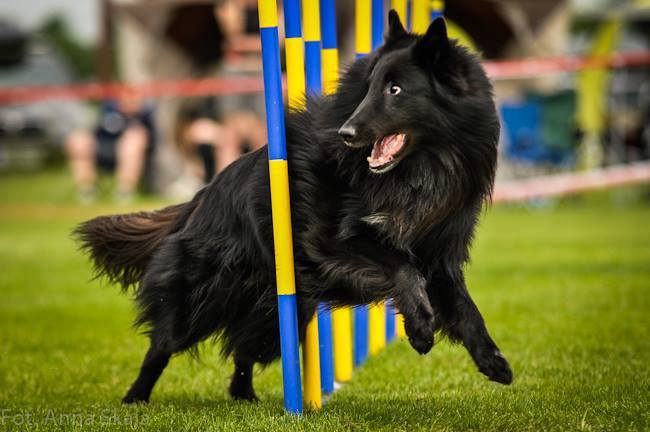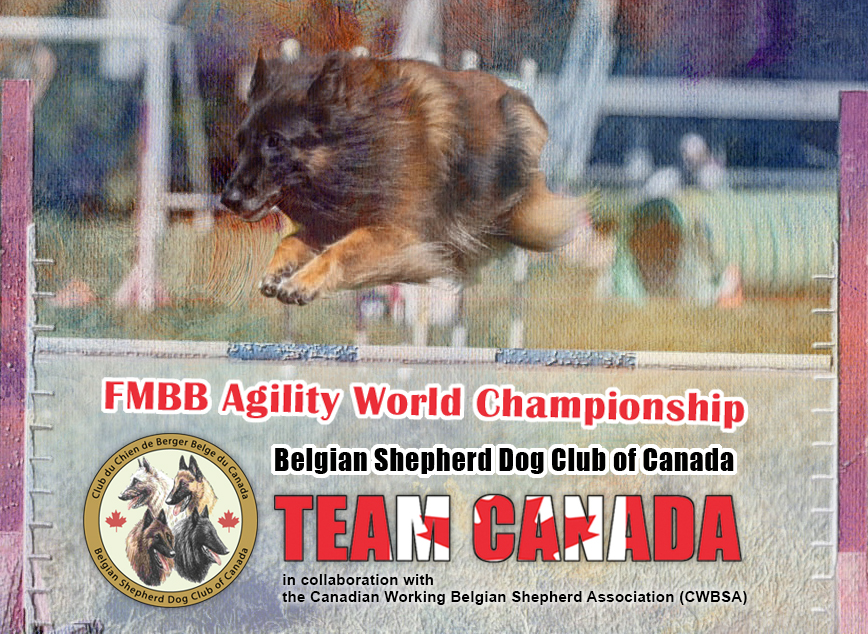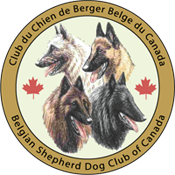Agility
 Dog agility is a sport in which a handler directs a dog through an obstacle course in a race for both time and accuracy. Dogs must run off-leash with no food or toys as incentives. The handler can touch neither dog nor obstacles, except accidentally, consequently, the handler's controls are limited to voice, movement, and various body signals, requiring exceptional training of the animal and of the human.
Dog agility is a sport in which a handler directs a dog through an obstacle course in a race for both time and accuracy. Dogs must run off-leash with no food or toys as incentives. The handler can touch neither dog nor obstacles, except accidentally, consequently, the handler's controls are limited to voice, movement, and various body signals, requiring exceptional training of the animal and of the human.
In its simplest form, an agility course consists of a set of standard obstacles, laid out by an agility judge in a design of his own choosing on a roughly 100 by 100 foot (30 by 30 m) area, with numbers indicating the order in which the dog must complete the obstacles.
Courses are complicated enough that a dog could not complete them correctly without human direction. In competition, the handler must assess the course, decide on handling strategies, and direct the dog through the course, with precision and speed equally important. There are many strategies to compensate for the inherent difference in human and dog speeds and the strengths and weaknesses of the various dogs and handlers. Many things can go wrong, though, and for any course on any day, it is rare to be able to predict which team will perform best.
 The BSDCC Performance Committee is responsible for the yearly Team Canada selection for the Belgian Shepherd's FMBB Agility World Cup.
The BSDCC Performance Committee is responsible for the yearly Team Canada selection for the Belgian Shepherd's FMBB Agility World Cup. This championship follows the rules and regulations of the FCI Agility Regulations.
» BSDCC Team Regulations & Selection Criteria
» BSDCC Team application Form
» BSDCC Qualification Form
» FCI Agility Regulations and Information
» FMBB 2023 World Championship website
For more info on FMBB Agility Team Canada, please contact the BSDCC Performance Committee.
Because each course is different, handlers are allowed a short walk-through before the competition starts. During this time, all handlers competing in a particular class can walk or run around the course without their dogs, determining how they can best position themselves and guide their dogs to get the fastest path around the numbered obstacles.
Most Belgian Shepherd Dogs seem to excel in Agility. I believe the reason for this is their strong ability to read their owner's feelings and the strong connection they have with them.
So now that you know a little more information about Agility; why don't you find a club near you and try it with your Belgian!

